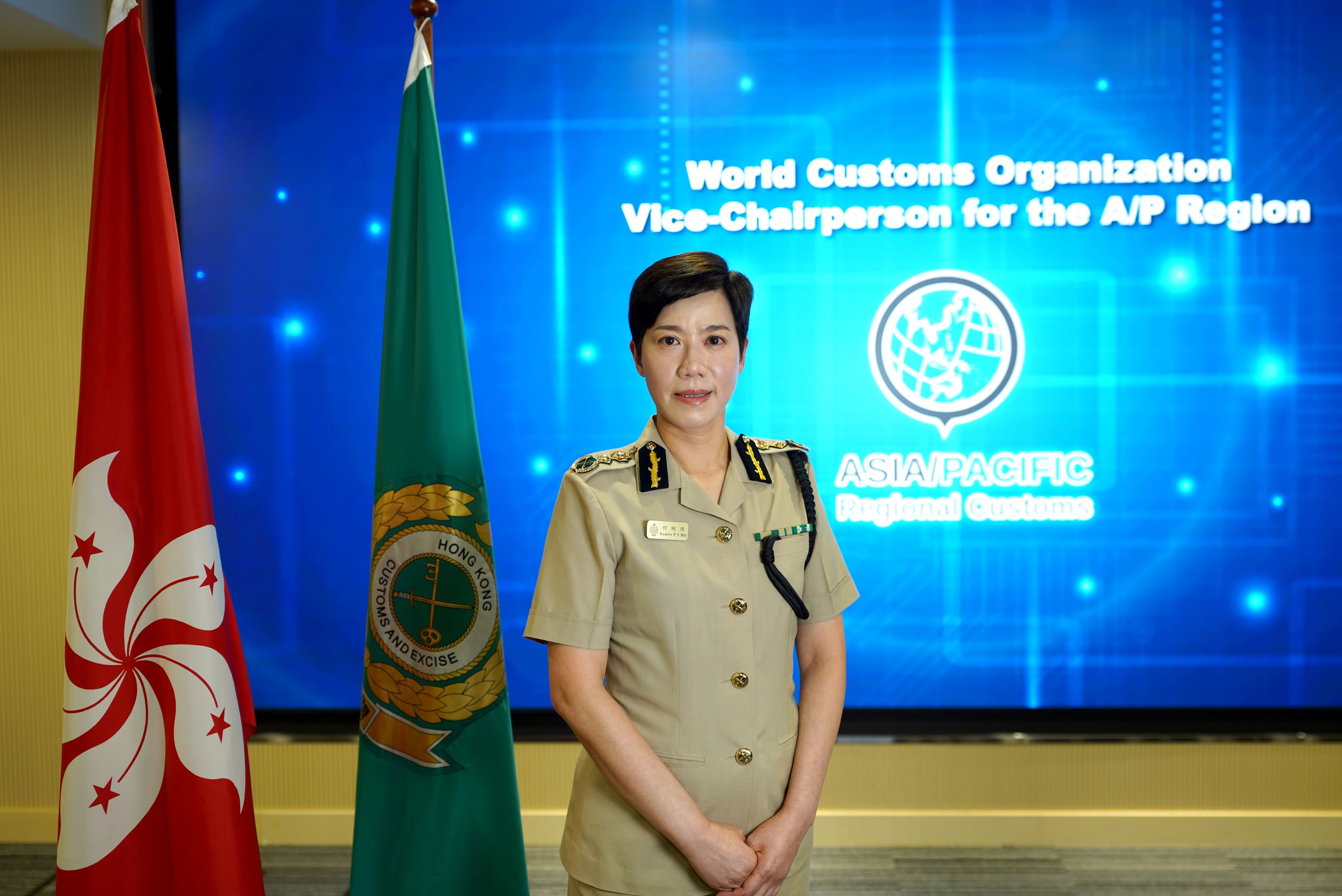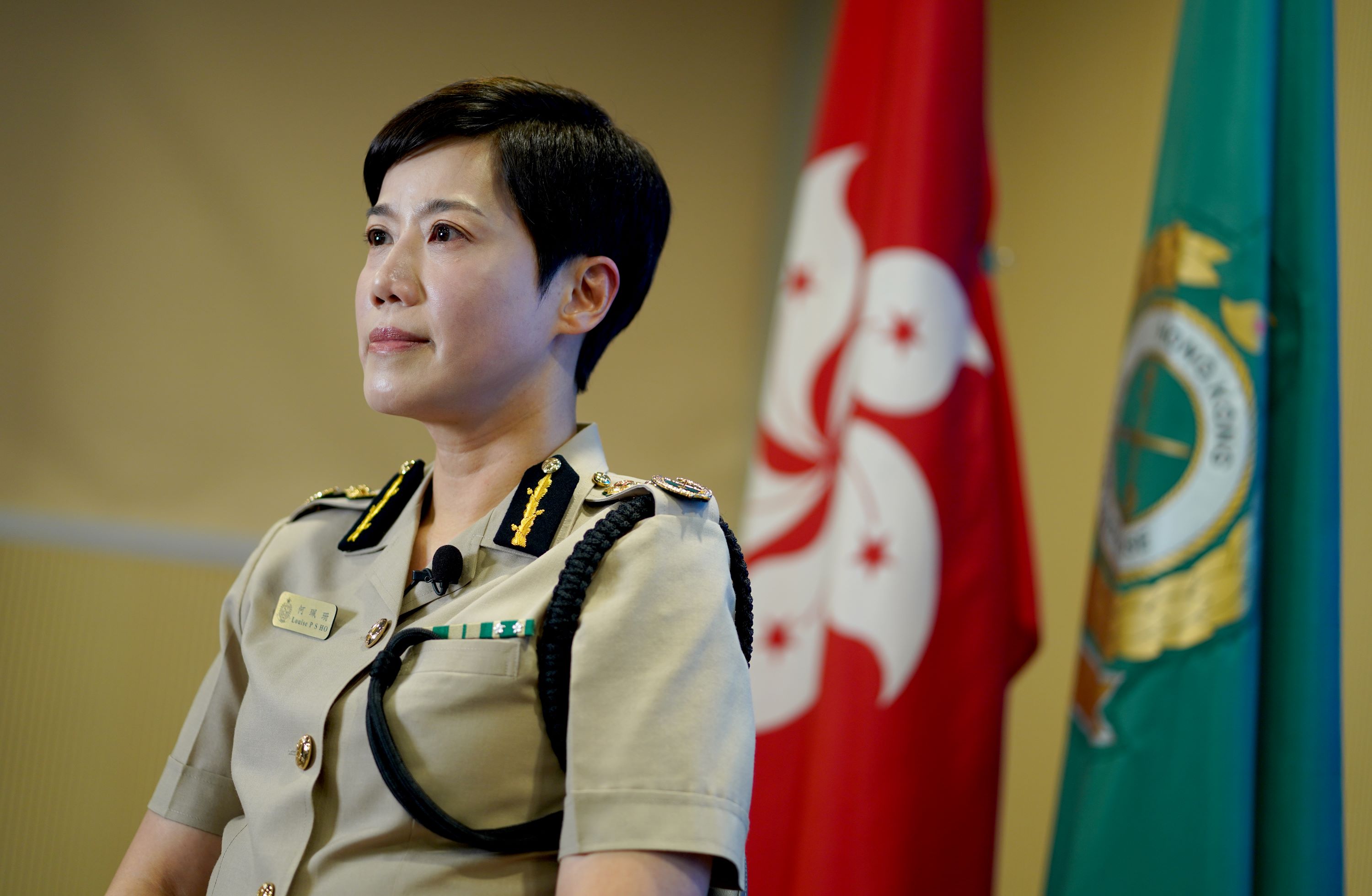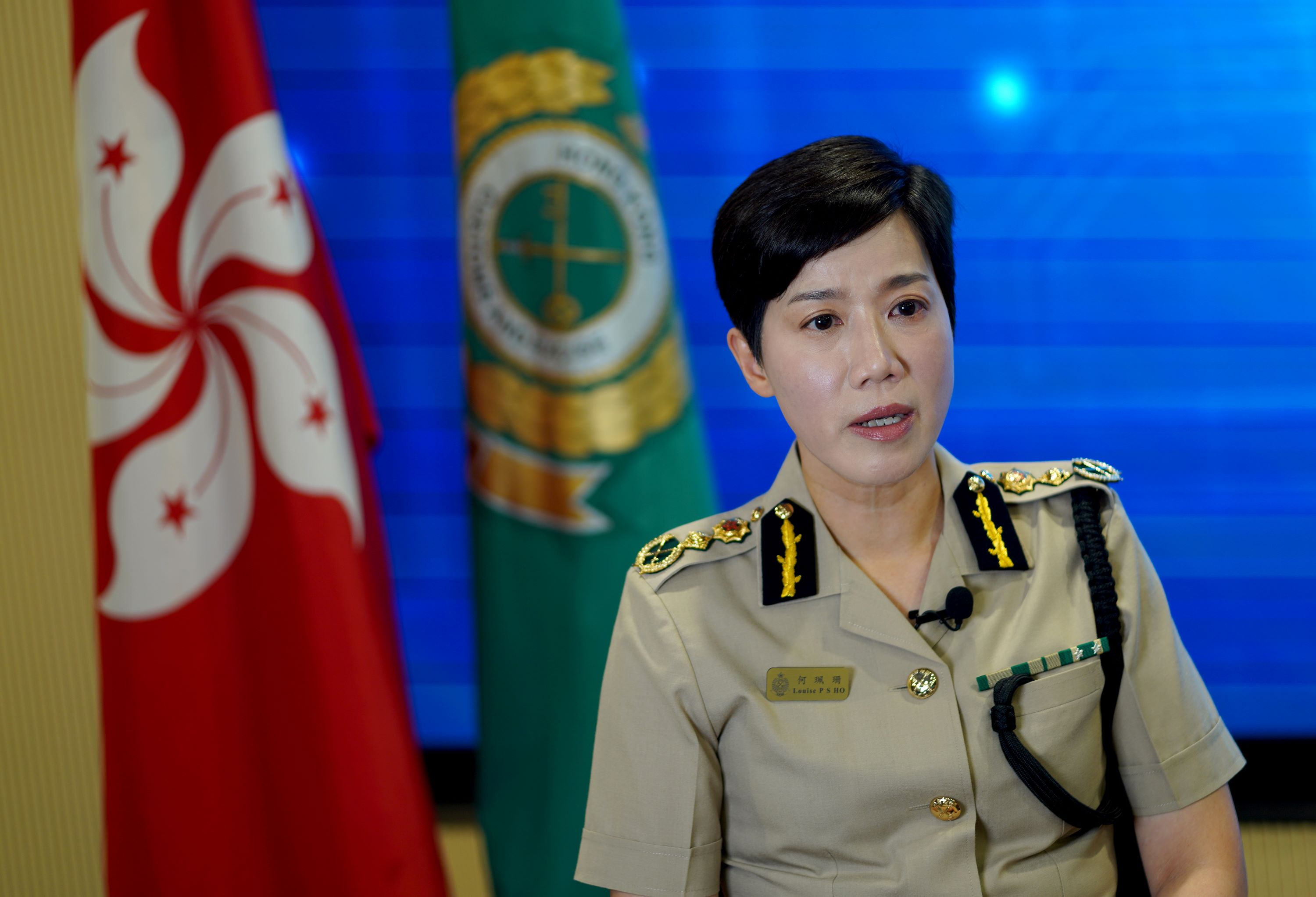Hong Kong, as the new vice-chairperson of the World Customs Organization, aims to leverage its resources to drive trade and economic recovery. Customs chief Louise Ho Pui-shan has a vision for the sector’s advancement. Wu Kunling reports from Hong Kong.

The complex global economic landscape calls for the Hong Kong Special Administrative Region to effectively use its position as vice-chairperson of the World Customs Organization in boosting the SAR’s favorable business environment to tackle and navigate challenges in international trade.
In an exclusive interview with China Daily, Commissioner of Customs and Excise Louise Ho Pui-shan says it’s incumbent on Hong Kong to fulfill its duties globally and within the nation’s development framework in an increasingly diverse and challenging economy.
ALSO READ: HK customs elected World Customs Organization vice-chair
Ho — the first woman to head the department — says the customs control services have to deal with a host of factors, such as the surge in the volume and interdependence of world trade, emerging modes of trade represented by cross-border e-commerce, and the digitalization of trade customs processes.
While COVID-19 exacerbated these challenges, requiring customs authorities to adapt to an ever-changing environment, it has also proved the importance of free and efficient international trade for inclusive, sustainable economic development, with the authorities playing a crucial role in this endeavor.
New opportunities
Hong Kong Customs, in the name of Hong Kong, China, was elected the WCO’s vice-chairperson for the Asia-Pacific region in June for a two-year term, succeeding Australia.
The independent intergovernmental body, aimed at promoting the effectiveness and efficiency of Customs administrations, represents 186 Customs departments worldwide that collectively process about 98 percent of international trade.
Ho, who was appointed by the central government as the SAR’s customs chief in 2021, says her department will leverage its role within the WCO to reinforce multilateral cooperation and enable Hong Kong to seize more global development opportunities.
ALSO READ: New platform to disseminate GBA customs clearance information
As a WCO member since 1987, Hong Kong Customs has been actively participating in the organization’s events, having also served as its vice-chairperson for the Asia-Pacific from 2000 to 2002.
Assuming the post again 24 years later has unparalleled significance, reflecting Hong Kong Customs’ leadership in the global customs community and the confidence of its regional partners in the city’s ability to promote multilateral cooperation, says Ho.
During its term from 2024 to 2026, Hong Kong Customs will play a leading role in hosting events, driving progress in the WCO’s agenda, and coordinating international cooperation. It will organize conferences and workshops at international and regional levels and chair the WCO Asia-Pacific Regional Heads of Customs Administrations Conference — the highest-level meeting in the region — at which Customs heads and senior officials set the future direction of regional customs affairs.

Hong Kong Customs also plans to take relevant enforcement action, and capacity-building activities based on regional members’ concerns, such as discussing the development of smart Customs, addressing enforcement challenges amid the rapid development of e-commerce, anti-narcotics, anti-illicit cigarettes, anti-money laundering, combating wildlife trafficking, and promoting gender equality.
Ho would like to see young people joining and helping to host such events to broaden their horizons and develop global perspectives. She believes these activities will safeguard multilateralism and promote international cooperation. It’s critical for Hong Kong to consolidate its status as a world financial center, a regional intellectual property trading hub, an international shipping center, and an aviation pivot that are among the “eight centers” outlined in the nation’s 14th Five-Year Plan (2021-25) as the city’s future development path.
READ MORE: HK to launch express route for mainland’s fresh produce in Q2
These efforts will boost regional law enforcement, facilitating Hong Kong’s trade and commerce and enhancing its safety and security by measures such as streamlining customs clearance for goods and buttressing international cooperation in drug interdiction and smuggling.
In Ho’s view, Hong Kong Customs can build its capability with the agenda and foster closer ties among customs administrations worldwide, contributing to the SAR’s economic development.
Given that the Asia Pacific region accounts for one-third of the world’s population and over 60 percent of the global economy and nearly half of the international trade volume, Ho sees Hong Kong’s second term as WCO vice-chairperson as an excellent opportunity for the city to go global and polish its “golden business card” as an international metropolis.
To achieve this, Hong Kong Customs will maximize its unique advantages to foster partnerships with members in the region from the leadership level, thus promoting economic cooperation and cultural exchanges with countries in Southeast Asia, the Middle East, Latin America, Africa, especially those involved in the Belt and Road Initiative.
Ho was among Chief Executive John Lee Ka-chiu’s delegation that visited three Southeast Asian countries recently. She and Lao Customs Department Director-General Phoukhaokham Vannavongxay signed an agreement on deepening intelligence exchanges and information sharing, cracking down on cross-border crime and facilitating trade.
Prior to that, she had met and exchanged customs work experience with numerous colleagues, including the WCO Secretary General Ian Saunders and heads of Customs administrations from Australia, the United Arab Emirates, Maldives and multiple Southeast Asian countries.
READ MORE: HK Customs promotes exchanges with IP protection event
Pledging to build mutual trust with her international counterparts, Ho said she hopes that Hong Kong can join the Regional Comprehensive Economic Partnership early and explore greater development opportunities.
Unchanging responsibilities
Besides diligently conducting the work of the WCO, Ho emphasized that Hong Kong Customs will not falter in its basic responsibilities.
She notes that her department has set records in the value and quantity of smuggled goods intercepted in recent years, while making significant advancements in protecting consumers’ interests and intellectual property rights, upholding Hong Kong’s trading integrity and safeguarding national security.

Managing increased cross-boundary traffic between the SAR and the Chinese mainland is also an integral part of the customs authorities’ daily operations as business and social exchanges between Hong Kong and mainland residents grow, says Ho.
To meet the demand, measures have been taken, such as streamlining operations and using new technologies to tackle the rising risks of smuggling activities and balancing efficient customs clearance with robust boundary security.
READ MORE: HK, mainland to boost customs ties to foster GBA growth
In this realm, fortifying cooperation with the mainland in customs clearance and law enforcement is among Hong Kong Customs’ key tasks. The department has set up a designated notification mechanism at various checkpoints to share information with mainland customs, including real-time passenger and vehicular traffic and the latest smuggling trends. This will enable both sides to act swiftly in dealing with any contingency.
Ho stresses that the exchanges between Hong Kong Customs and its mainland counterpart go far beyond this. She has led several delegations to various mainland cities to learn about their customs operations, saying she’s impressed by the nation’s smart customs development.
Hong Kong Customs sees its mainland peer as a role model that inspires the department to make digital transformation and intelligent upgrading core strategies in accelerating smart customs development.
Contact the writer at amberwu@chinadailyhk.com


